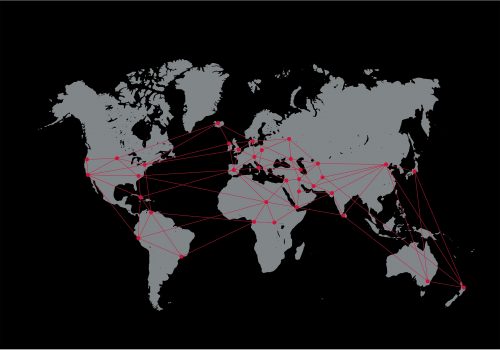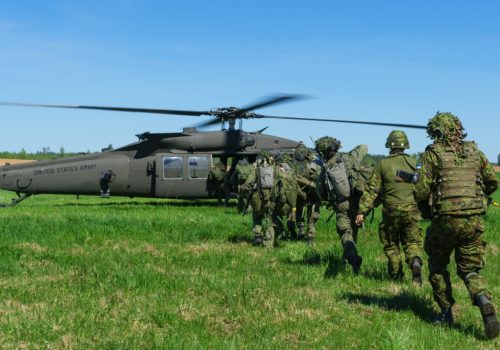Alliance power for cybersecurity
There is only one internet and only one cyberspace connecting individuals, enterprises, and nations all over the world. Ever more frequently, this shared space is coming under attack from malicious actors, both state and non-state, who are seeking to exploit cyberspace’s shared infrastructure for their own ends. Addressing cybersecurity threats is therefore an international problem that requires an international solution. But given the myriad of threats faced in the cyber domain and the ambiguous borders that exist there, how can states best address these challenges and ensure the safety of their own networks and people?
In this new report from the Scowcroft Center’s Transatlantic Security Initiative, Cyber Statecraft Initiative senior fellow Kenneth Geers argues that the best way for democratic states to defend their own cyber networks is to leverage the multinational strength of political and military alliances like NATO and the European Union. Alliances like NATO give democracies an advantage over their authoritarian rivals by providing already established mechanisms for multinational cooperation. Alliances are therefore better equipped to tackle the inherently international challenges of cybersecurity.
To illustrate the impact of alliances on cybersecurity, Geers uses events in Ukraine as a case study, comparing the Ukrainian government’s efforts to defend against Russian cyberattacks shortly after the 2014 revolution with measures taken in cooperation with partners to defend the 2019 presidential election. Geers illustrates how collective action in 2019 produced improved security outcomes compared to efforts taken by Ukraine alone. Building on these lessons, Geers argues that the only structures likely to produce tangible results in cybersecurity are those within political and military alliances. Indeed, the only credible cyber superpower is a robust alliance. The report then offers a series of recommendations on how NATO and the EU can promote trust and collaboration among Allies and partners to build a more effective cyber alliance.
Click the link above to download the full report.
Subscribe for events and publications on European security
Sign up for updates from the Atlantic Council’s Transatlantic Security Initiative, covering the debate on the greatest security challenges facing the North Atlantic Alliance and its key partners.
Related content

The Transatlantic Security Initiative, in the Scowcroft Center for Strategy and Security, shapes and influences the debate on the greatest security challenges facing the North Atlantic Alliance and its key partners.

The Transatlantic Security Initiative, in the Scowcroft Center for Strategy and Security, shapes and influences the debate on the greatest security challenges facing the North Atlantic Alliance and its key partners.

The Cyber Statecraft Initiative works at the nexus of geopolitics and cybersecurity to craft strategies to help shape the conduct of statecraft and to better inform and secure users of technology.


